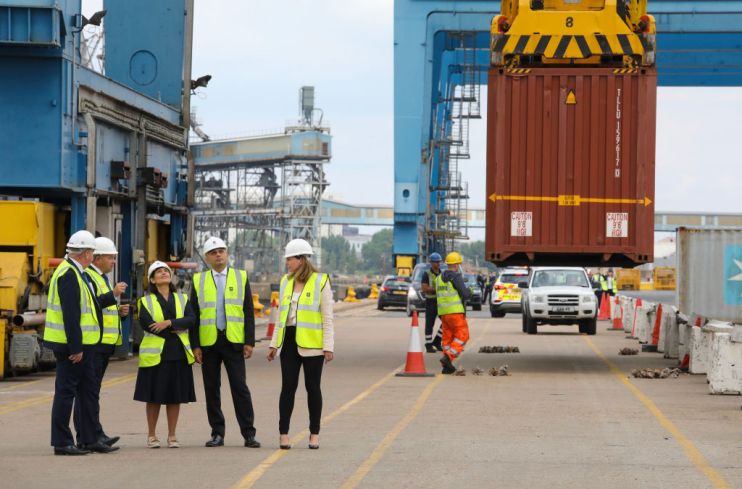Businesses vent fury at handling of Brexit after economy shrinks

UK business organisations have condemned the continuation of Brexit uncertainty after it helped push the economy into contraction in the second quarter. They called for “decisive action” to turn the situation around.
Read more: UK economy shrinks for first time in six years
GDP fell by 0.2 per cent in the first quarter, data from the Office for National Statistics (ONS) showed. This was below economists’ expectations of zero growth and the 0.5 per cent expansion seen in the first quarter.
An unwinding of stockpiling, which boosted the economy around the original March Brexit date, dragged down growth, as did carmakers bringing forward planned factory shutdowns to April.
The Institute of Directors (IoD), an organisation for business leaders, said the contraction was “confirmation of the concerns businesses have been expressing about the economy”.
“Companies have been running down stockpiles that were built up before the original March deadline for leaving the EU, and have kept production at tentative levels,” said Tej Parikh, the IoD’s chief economist.
“Many firms have had to keep investment and recruitment decisions on ice, as the prospect of a disorderly Brexit becomes increasingly real.”
Business investment fell 0.5 per cent in the second quarter, today’s figures showed, after an increase in the first quarter of the year. The Bank of England this month recorded the lowest investment intentions in nine years in its agents’ surveys of businesses.
Small businesses call for emergency budget
In response to today’s growth figures the Federation of Small Businesses (FSB) called for an “emergency budget” to kickstart the economy and cushion the expected damage from a possible no-deal Brexit.
Martin McTague, policy and advocacy chairman at the FSB, said: “If the Treasury delays action until after 31 October, its efforts will likely prove too little too late.”
New chancellor Sajid Javid is thought to be mulling the option. But head of the Institute for Fiscal Studies (IFS) think tank told the Public Finance news site that it is “an extraordinarily bad idea” to make tax and spending decisions “when you’ve got very little idea what’s going to be happening with the economy over the next year”.
Read more: Property investment plummets as Brexit uncertainty hampers market
Suren Thiru, chief economist at the British Chambers of Commerce (BCC), said: “Anaemic investment limits innovation and productivity, stifling the UK’s growth prospects.” His organisation represents over 50 chambers from across the country.
“Unless decisive action is taken, it is increasingly likely that the factors that drove the contraction in the second quarter will continue to weigh on the UK,” he said.
No-deal Brexit worries
Chancellor of the exchequer Sajid Javid said: “This is a challenging period across the global economy, with growth slowing in many countries.”
“The government is determined to provide certainty to people and businesses on Brexit. That’s why we are clear that the UK is leaving the EU on 31 October.”
But businesses fear the effects of a no-deal Brexit, Thiru said. Such an outcome is looking increasingly likely under Prime Minister Boris Johnson’s new government.
“It is vital that the new government take all steps necessary to avoid a no deal Brexit and urgently tackle some of the longstanding domestic issues,” he said.
McTague of the FSB said that on top of Brexit firms have had to deal with “new HMRC reporting requirements, a higher national living wage, increases to auto-enrolment contributions and fresh business rates hikes”.
Brexit uncertainty means valuable leadership time is being taken up trying to mitigate the impact of a no-deal and protect jobs, said Clare Francis, head of Brexit advisory at Pinsent Masons.
“The bottom line is that political unrest and the threat of a no-deal Brexit is starting to bite,” she said. “British businesses are reluctantly spending on no-deal planning with stock piling and warehousing costs already hitting the bottom line.”
Origin story
Andy Halsall, managing director at one of the UK’s leading door and windows manufacturers Origin, said his business has been impacted by Brexit as 80 per cent of what he buys comes from Spain and Germany.
Read more: Sterling takes another hit as UK economy shrinks
He said the company has spent time and money stockpiling materials such as aluminium. He said: “This activity may have been replicated elsewhere in the manufacturing community and created a false impression on first quarter output.”
Yet he said higher prices at his German and Belgian competitors has “put people off buying from [mainland] Europe” and helped Origin from a sales perspective.